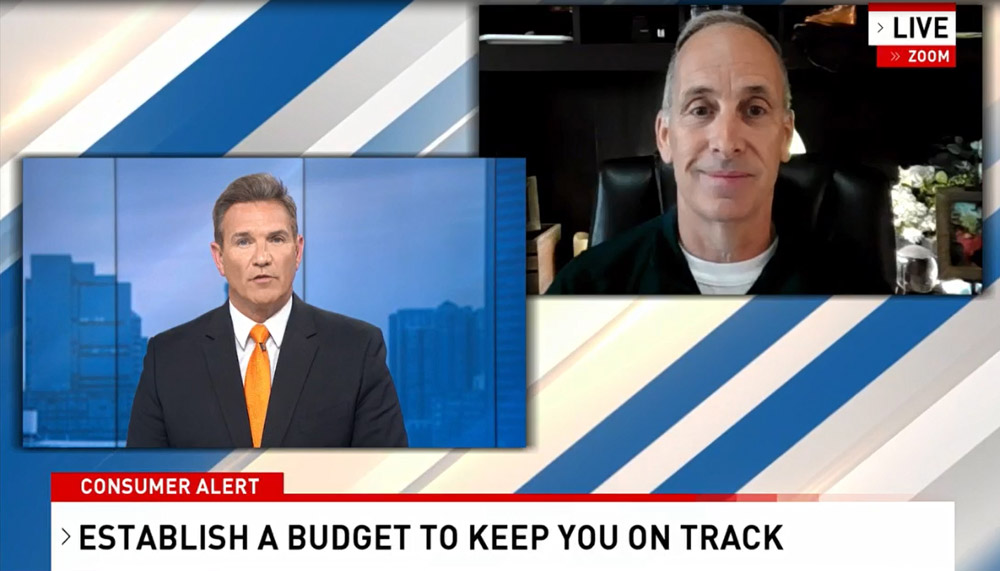Inflation has been high in the U.S. economy for over two years, causing many Americans to feel uncertain about their future. Despite worries about inflation, a survey found that 49% of people plan to travel more in 2023 than they did in 2022.
Rather than reducing their travel plans due to the high costs, people are willing to spend more to make good memories. To account for inflation, families will need to boost their travel budget.
Check out the Fox45 Consumer Alert above for budgeting advice from SECU Senior Vice President and Chief Deposit Officer, Drew McKone. Then dive deeper in the blog below to learn how to apply his advice to your travel budget.
The impact of inflation on travel costs
Data from the US Bureau of Labor Statistics shows that inflation continues to rise in the Baltimore metropolitan area. Home and rental prices, food, and energy all remained high in the first half of 2023.
Whether you’re traveling by air or car, you can expect to spend more on your 2023 travel than you did in recent years. Flight prices are up 20% compared to 2022. Meanwhile, inflation also impacts other travel expenses, such as theme park tickets, lodging costs, and travel insurance.
How much does a vacation cost in 2023?
There are a lot of costs to account for when planning your vacation. From event and attraction tickets to car rentals, airfare, and lodging, spending accrues fast.
The average vacation costs one person $1,919 per week. You may save money by opting for camping over a pricey hotel stay in New York City.
Incorporate vacation planning into your budget, ensuring you allot funds for travel in advance. Then, keep your budget on track while traveling. Identify attractions and dining ahead of time to plan your spending and avoid going over budget.
SECU Vacation Savings Tips
Travel within your means.
When most people hear “budget,” they think it means that they can’t spend any money on fun stuff, like vacations. It’s actually the opposite. Budgeting allows you to do fun things. When you plan for vacations and big purchases, you can spend your money and have fun without the financial burden of debt.
To enjoy your vacation without debt following you home, you first need to understand how much you have to spend. Establish a realistic budget based on your current financial situation, taking into account your income, expenses, and other savings goals. Strike a balance between enjoying your travel experiences and maintaining your long-term financial stability.
After researching and estimating expenses, you can break down your travel budget based on transportation, accommodation, meals, attractions, and any additional costs like travel insurance or visas.
Explore SECU savings account for every need.
Plan your travel budget as a family.
While building your vacation savings, it can be helpful to have a family budget meeting. Getting together once a month helps ensure everyone is on the same page and is keeping spending in check. When everyone in the household is aware of your financial goals, you’re more likely to be successful.
By involving the whole family in the budgeting process, everyone gains a better understanding of the costs involved in travel and the need to make informed spending decisions. Budgeting also allows families to prioritize their travel goals and allocate resources accordingly.
Additionally, budgeting encourages families to seek out cost-effective options, such as affordable accommodations or discounted activities, which can make travel more accessible and enjoyable for everyone. Ultimately, budgeting as a family fosters financial discipline, strengthens communication, and allows for more enjoyable and fulfilling travel experiences.
Adjust your travel budget over time.
Budget is not just a noun, it’s a verb. Inflation will continue impacting travel costs for the foreseeable future. Review your overall budget and your vacation savings fund from time to time to make sure that it continues to serve your goals.
It’s also important to review your budget immediately following your travels. Vacations can cost thousands of dollars, and you’re likely to return home with a few unplanned souvenirs. Review your budget once you’ve settled in to determine if you need to adjust your spending in the following months. Then, start allocating savings to your travel fund for next year.
Plan your travel budget with SECU.
SECU members earn cash back on debit purchases, and they get access to our online budgeting tool. This can help you keep track of your spending – to ensure your getaways don’t go over budget. Schedule a virtual appointment to learn more about how SECU can help you manage your spending and maximize your spending.

